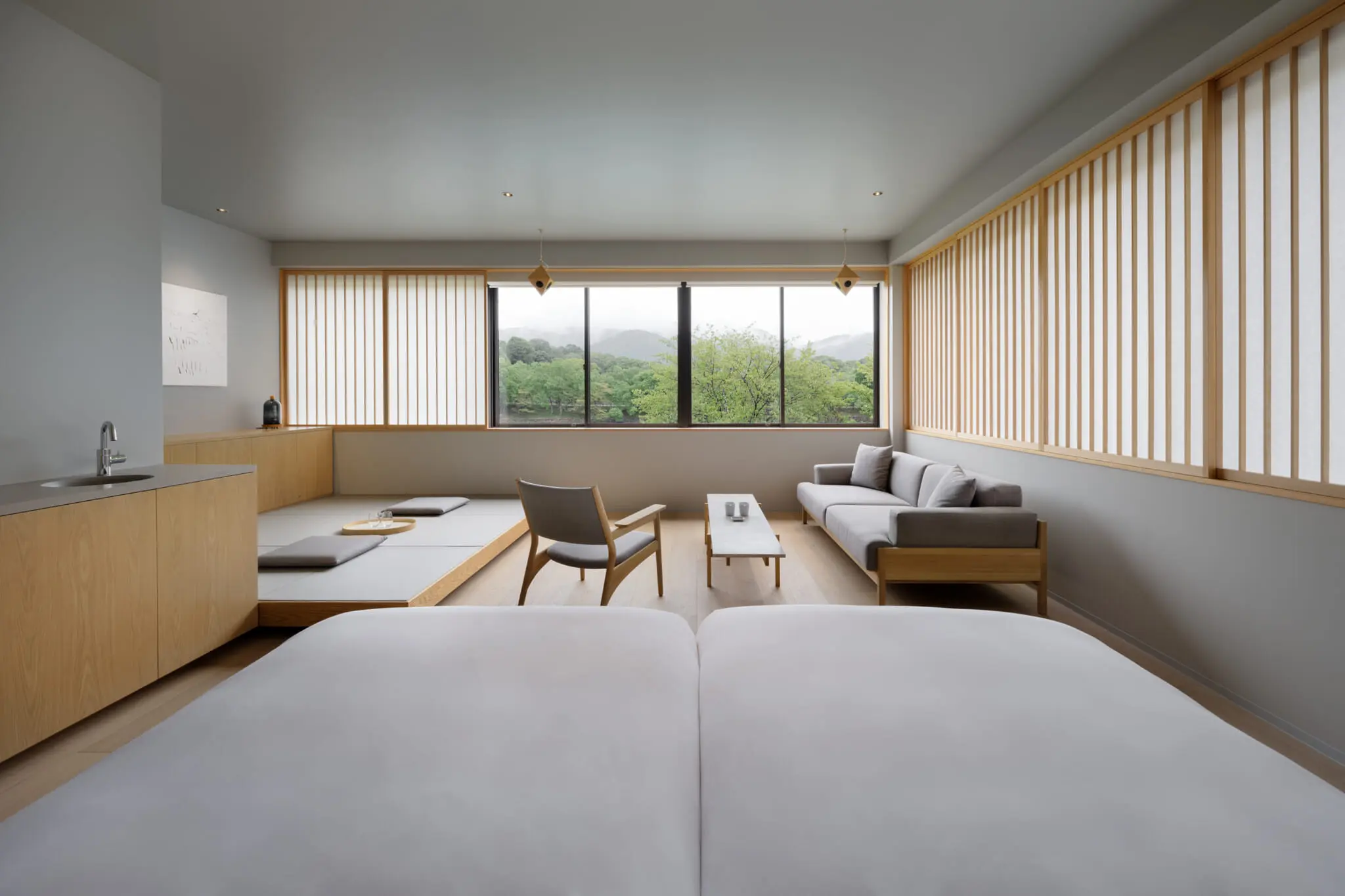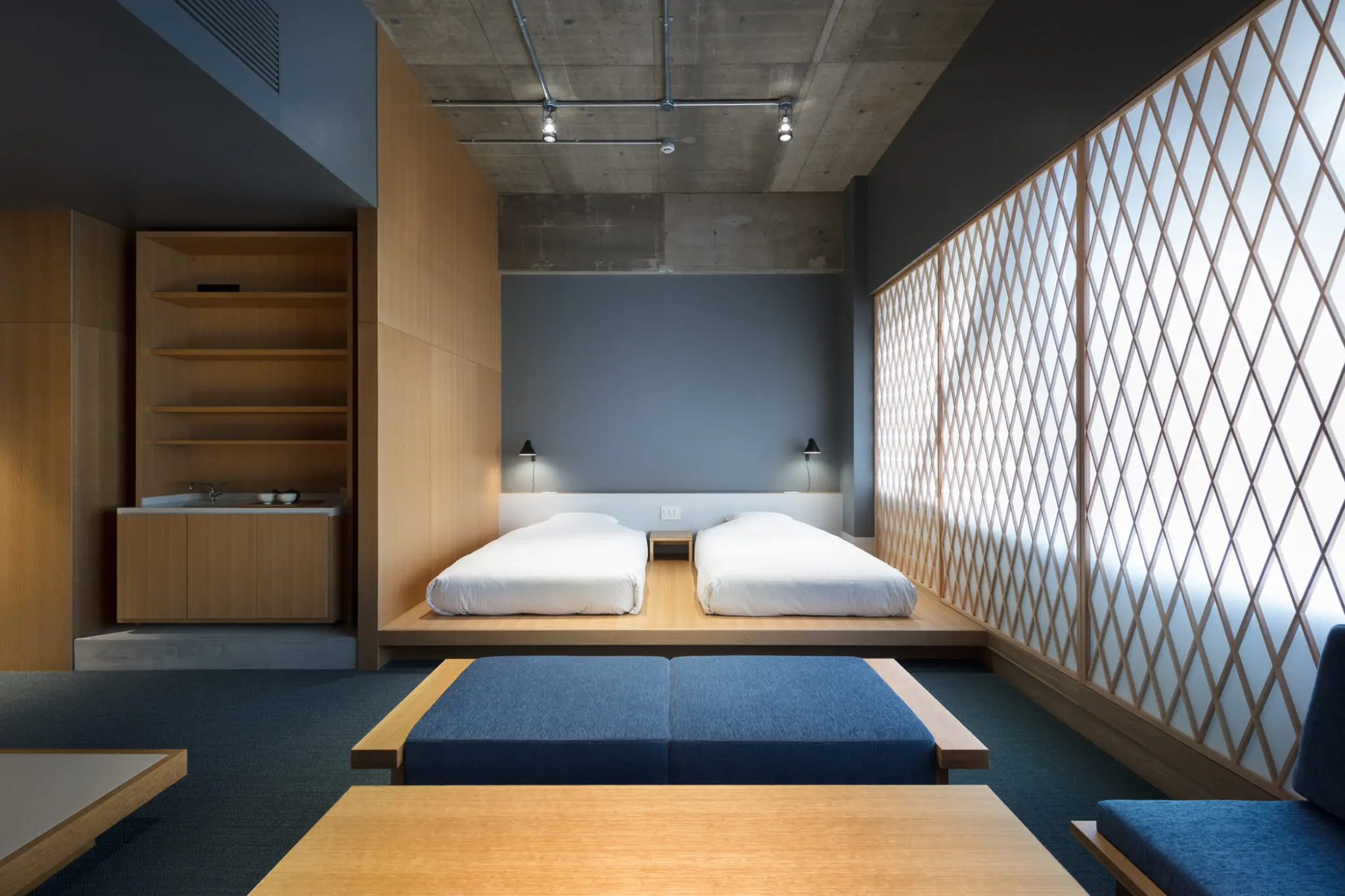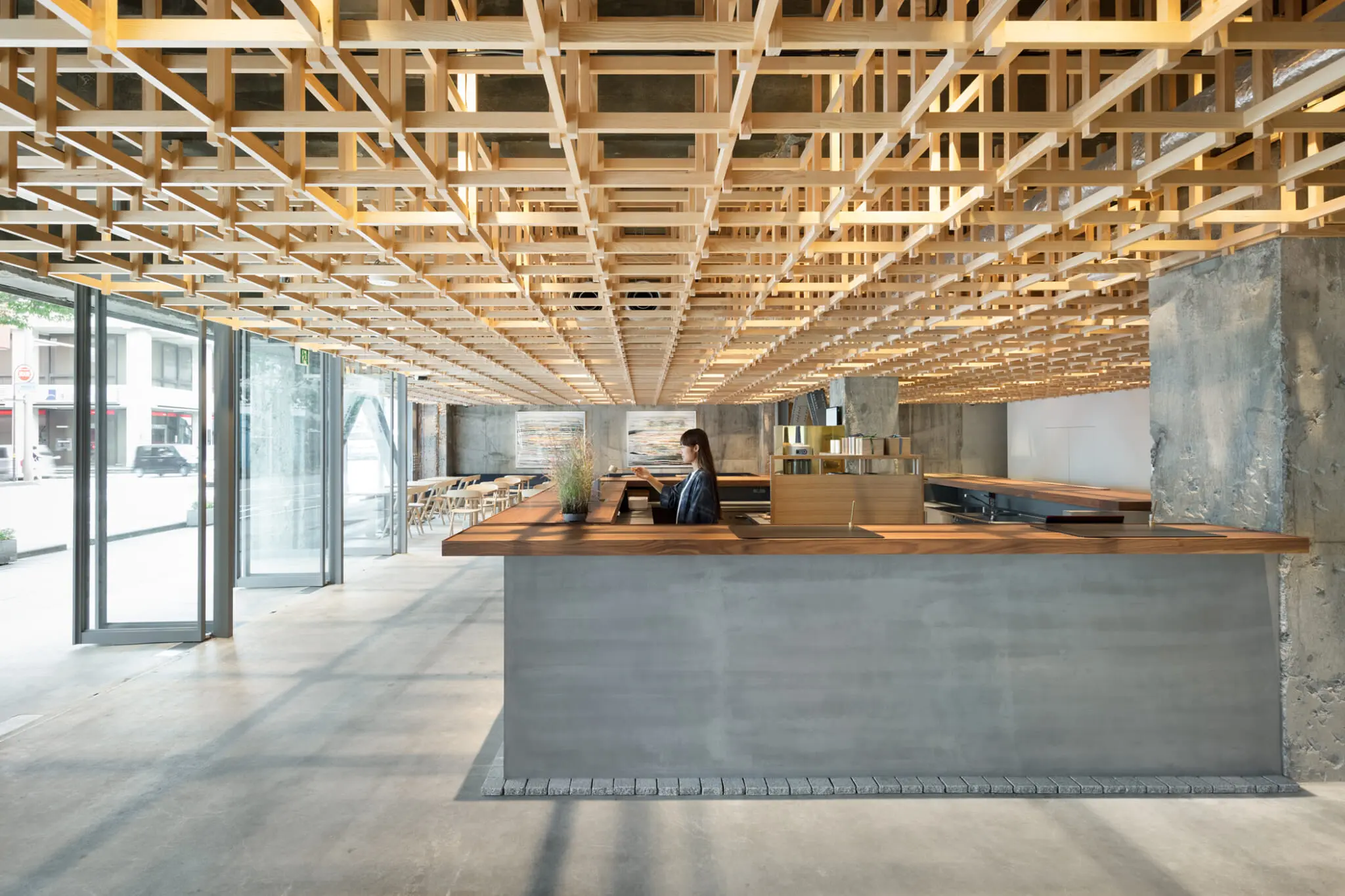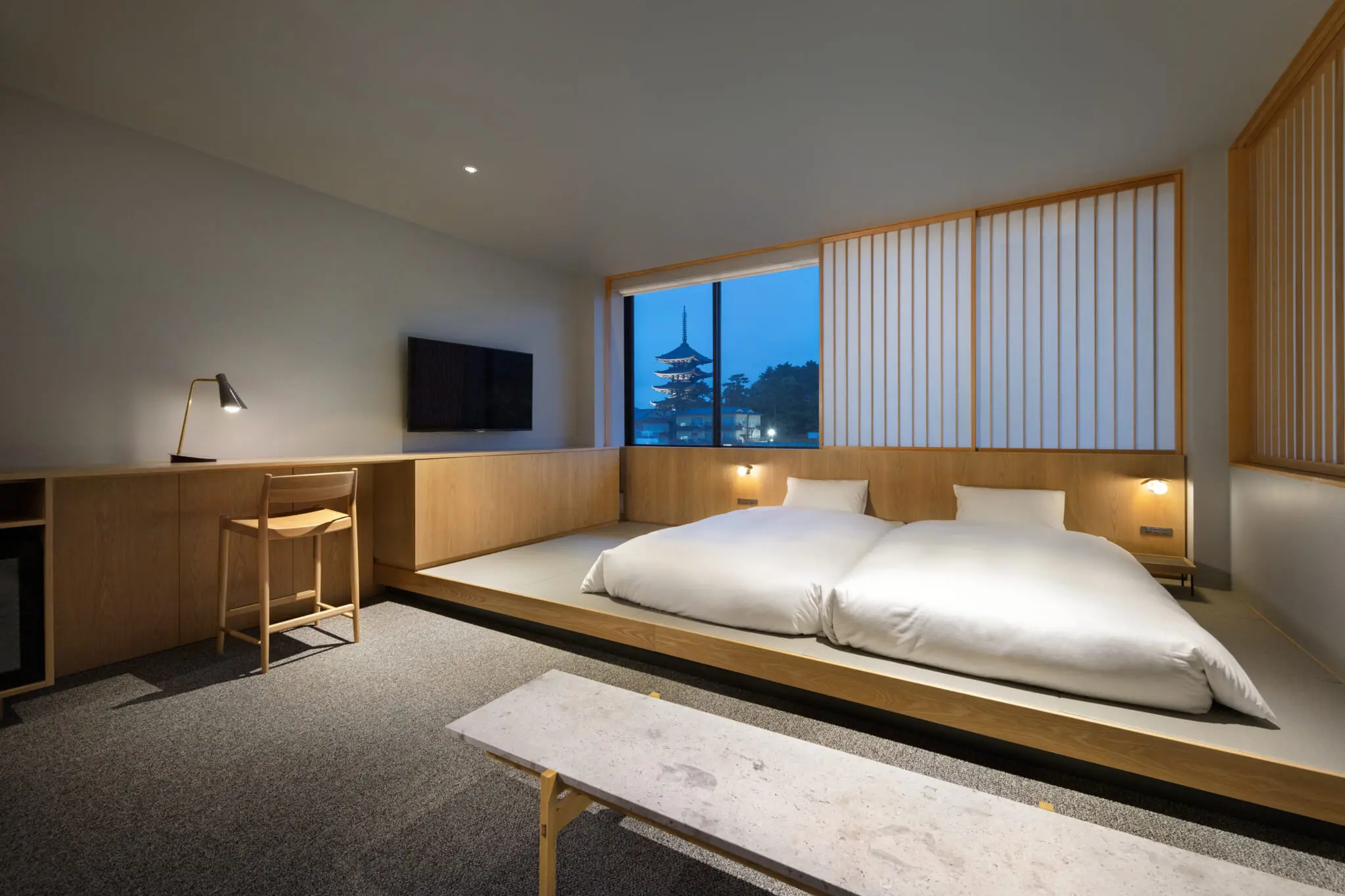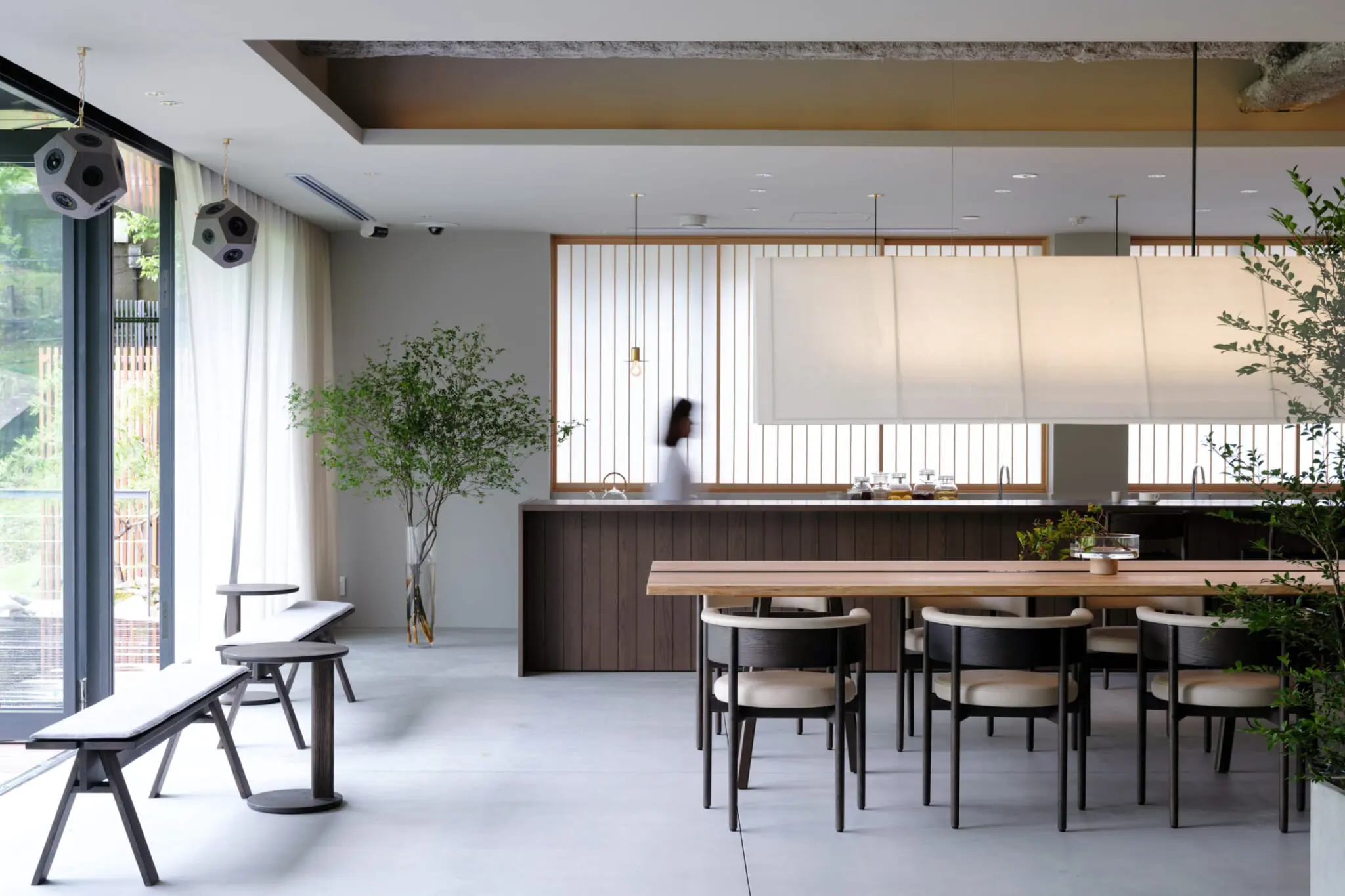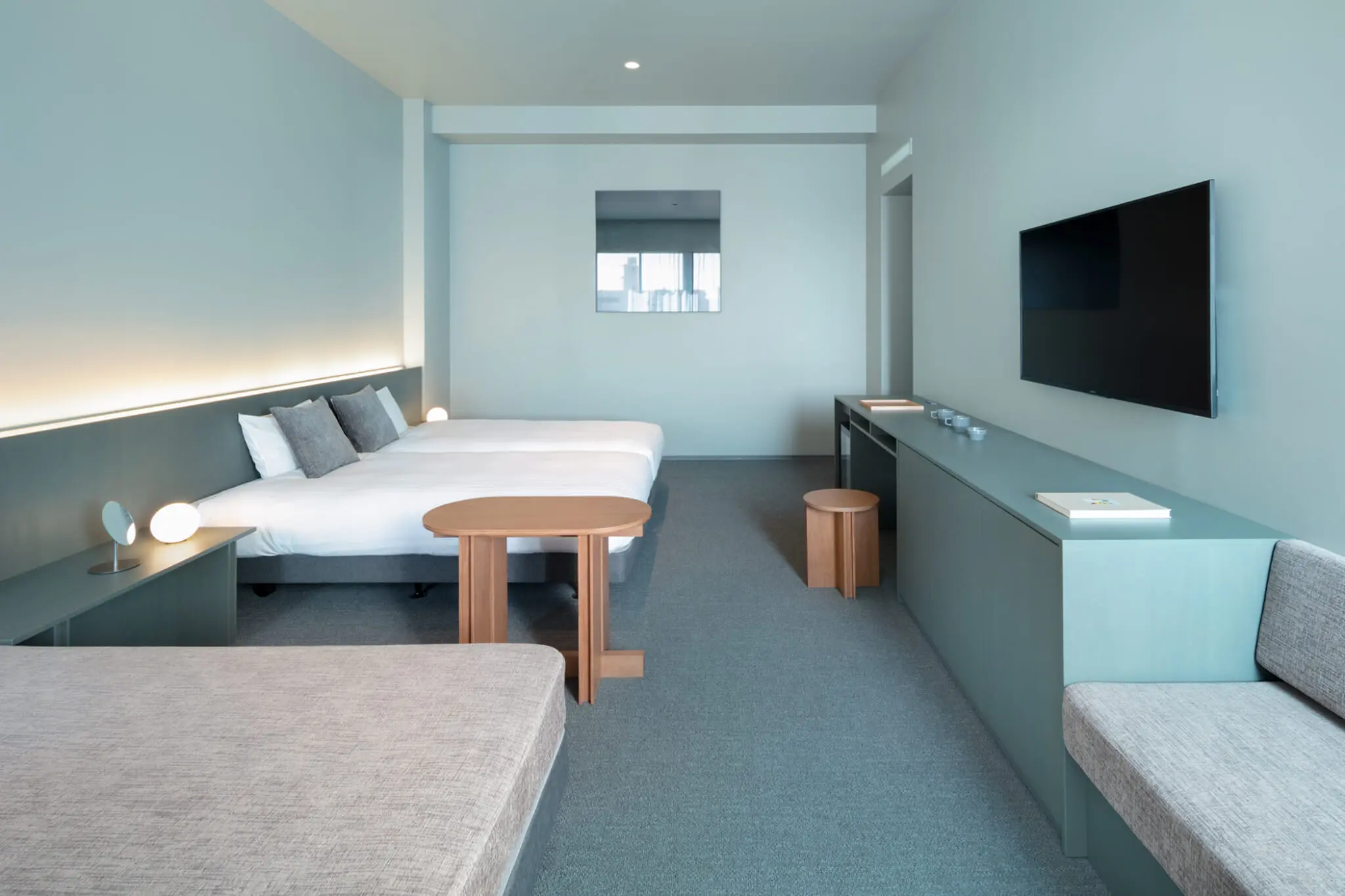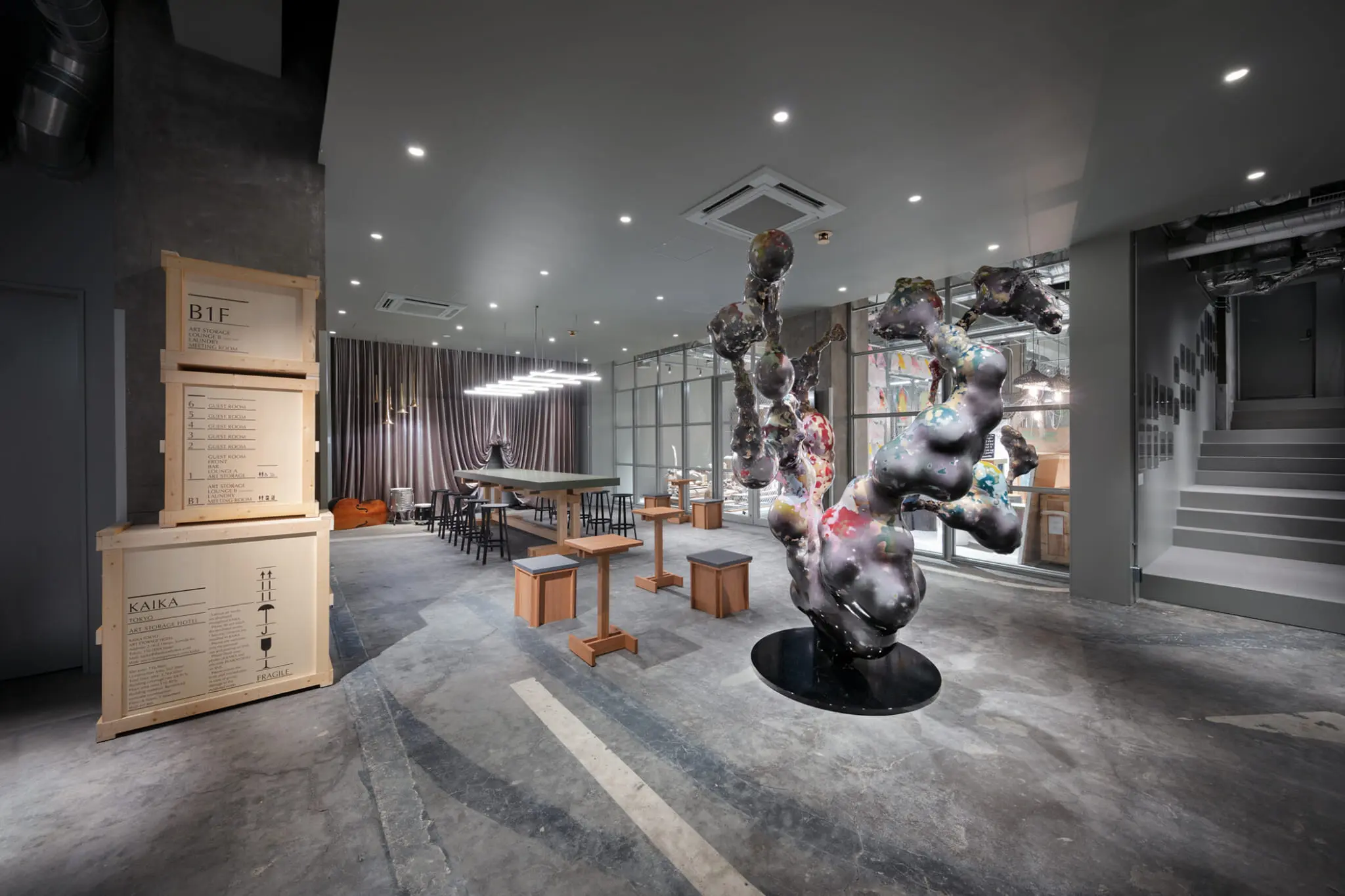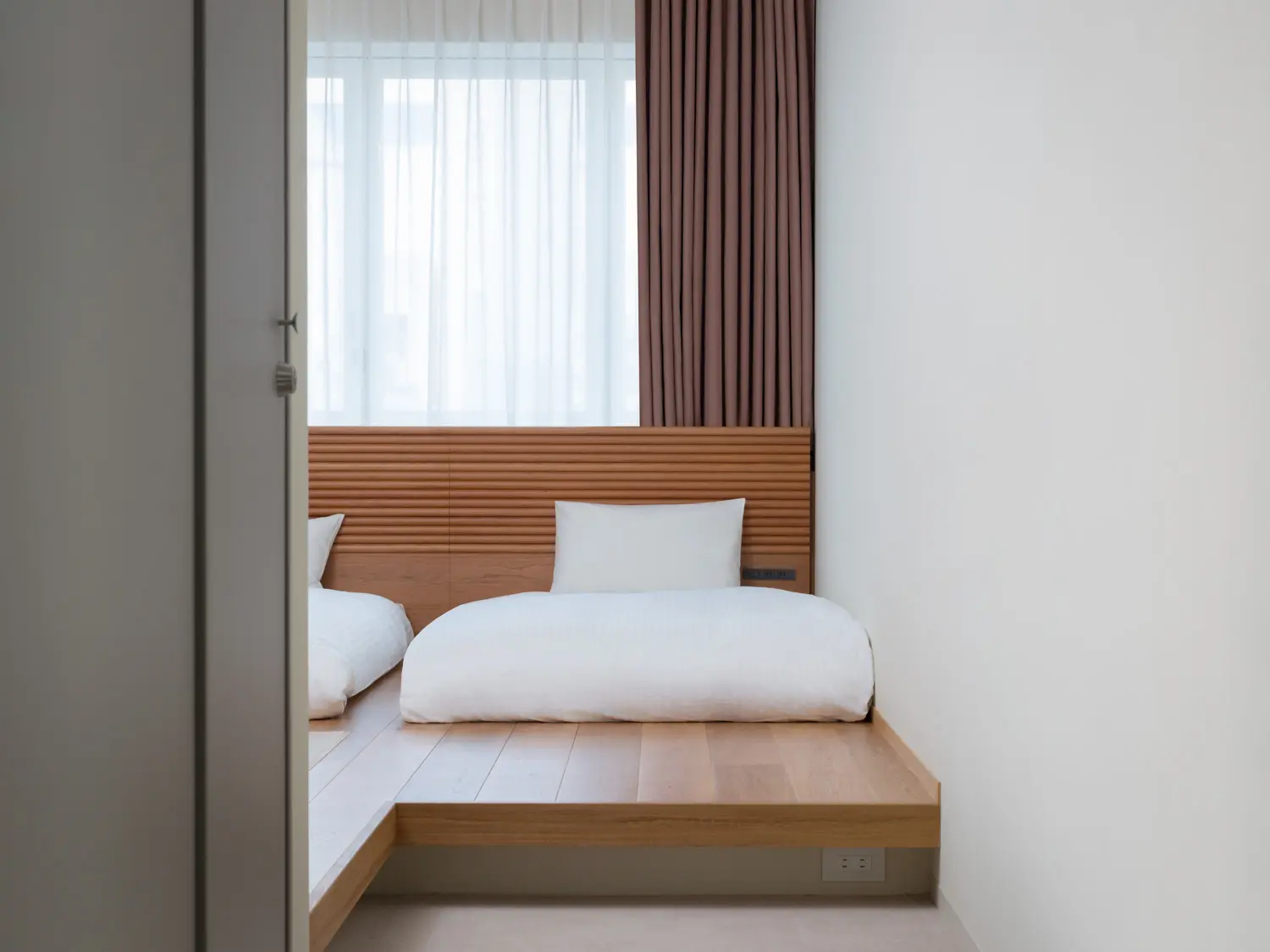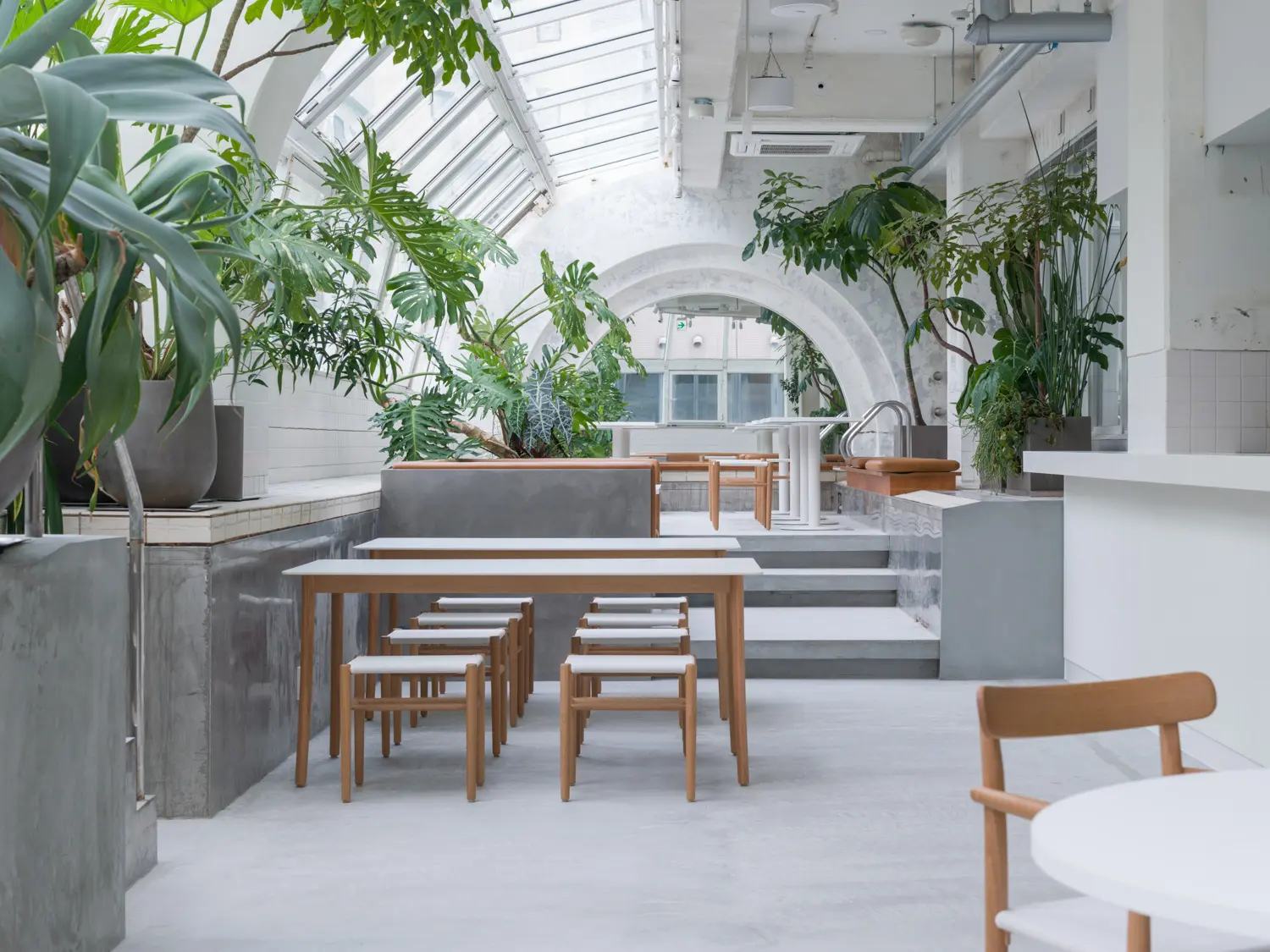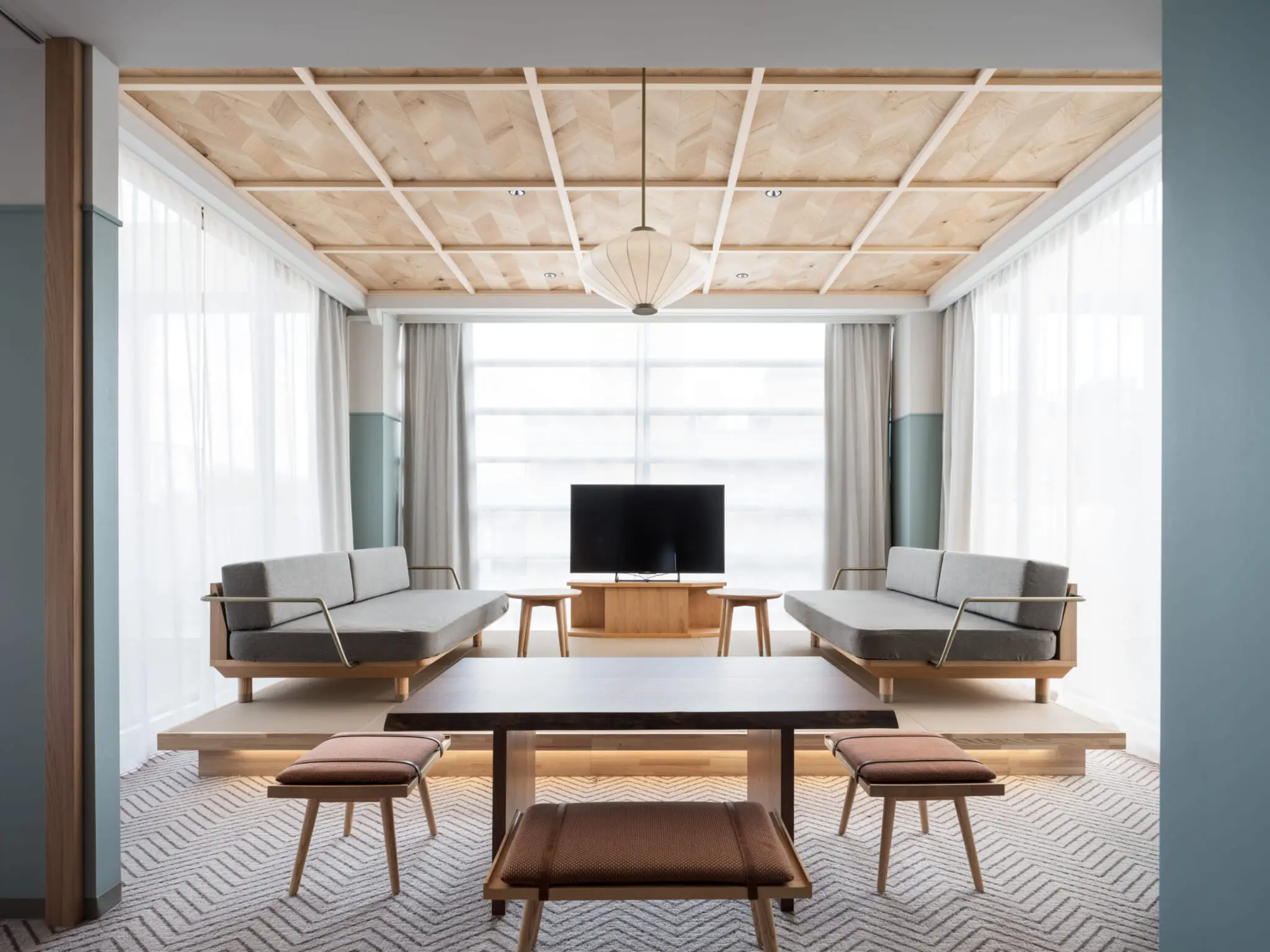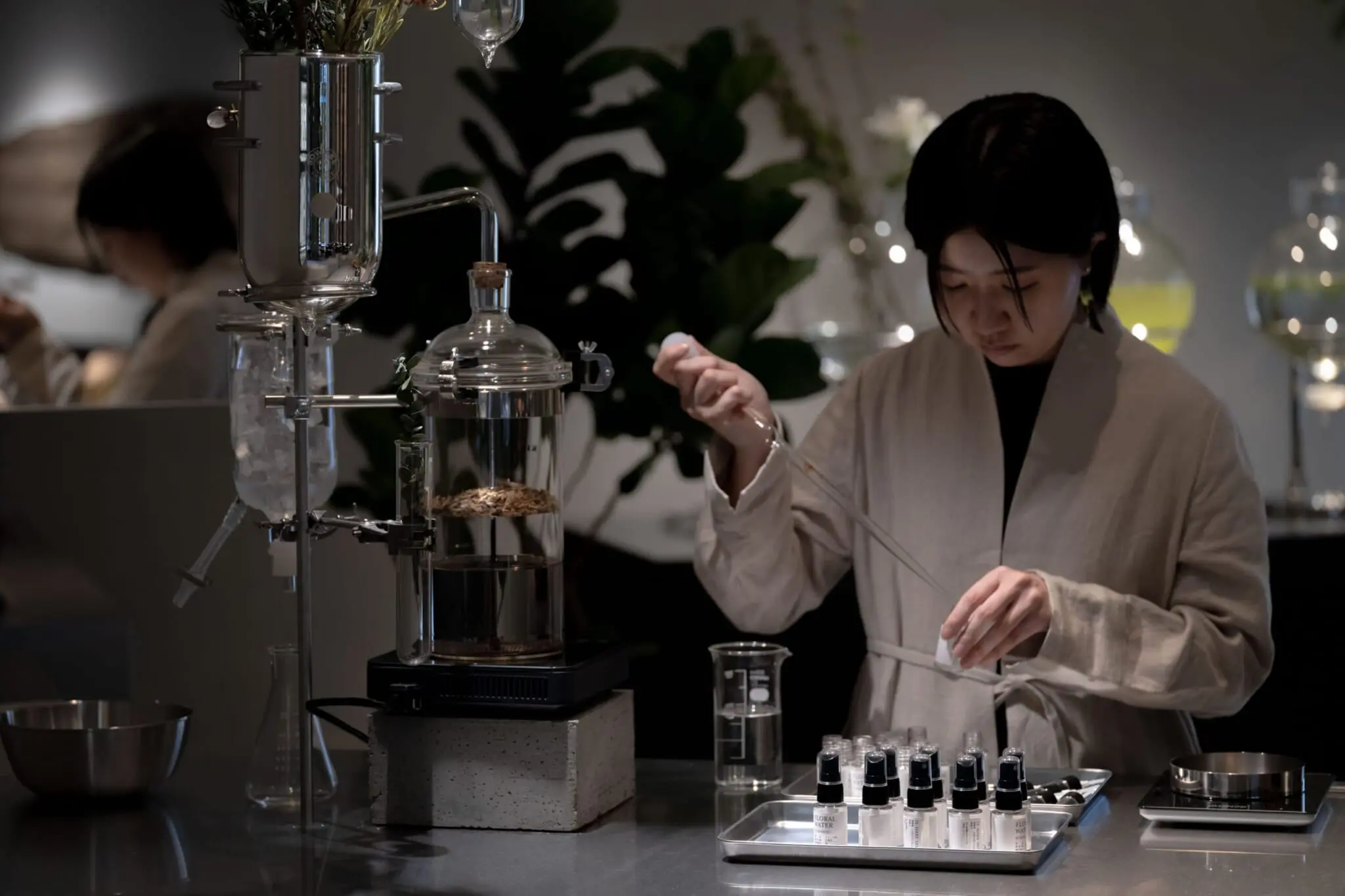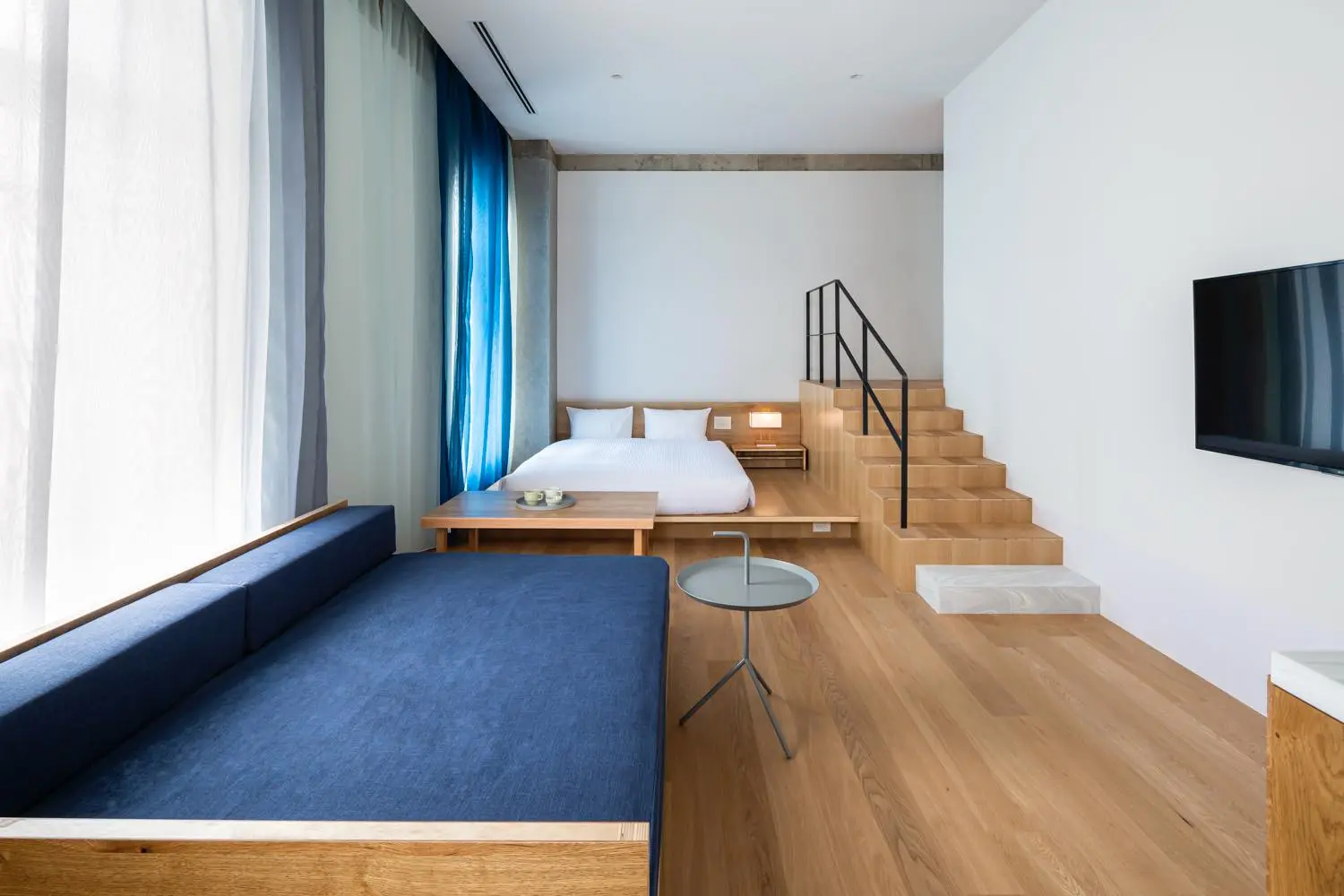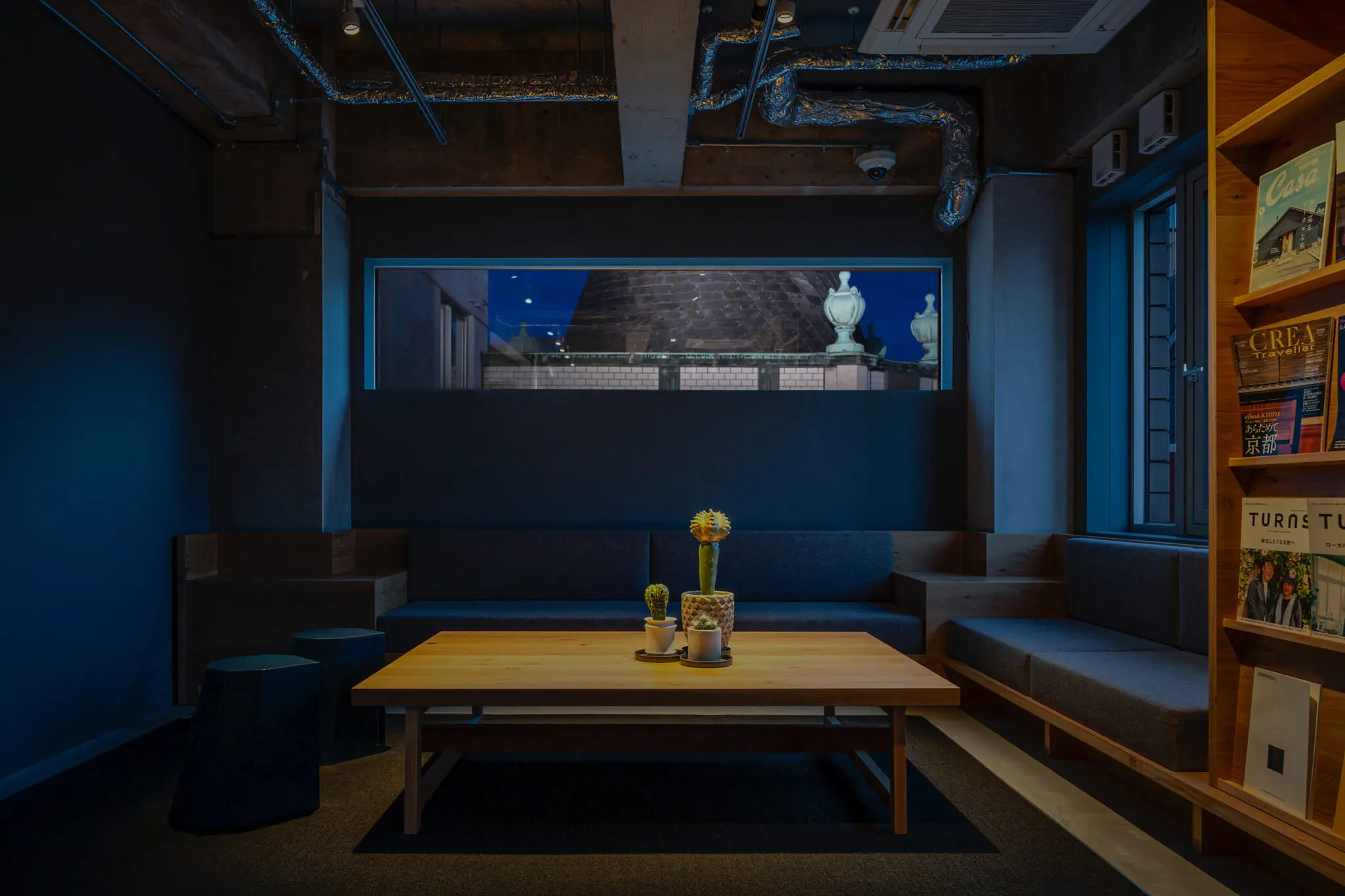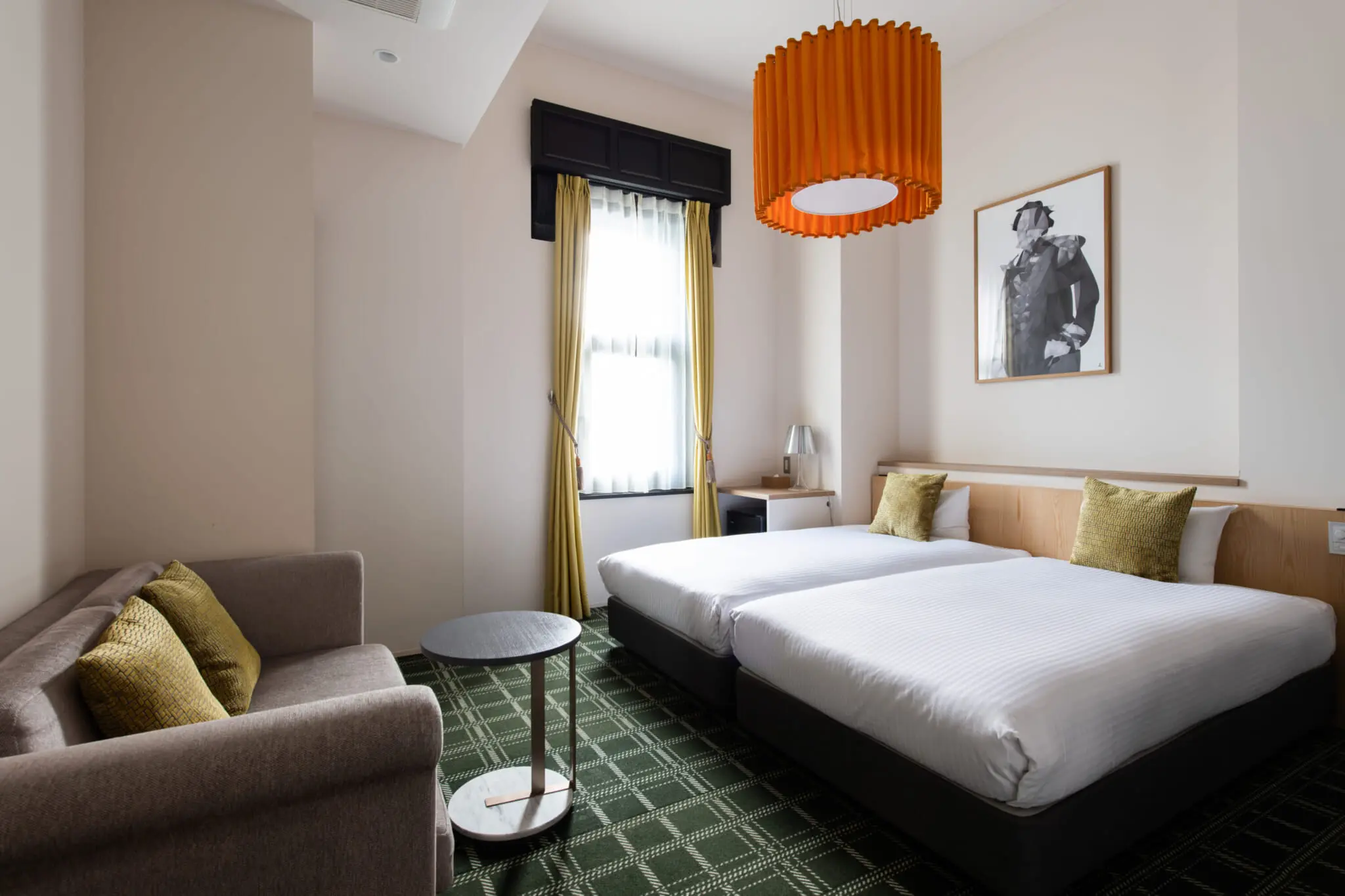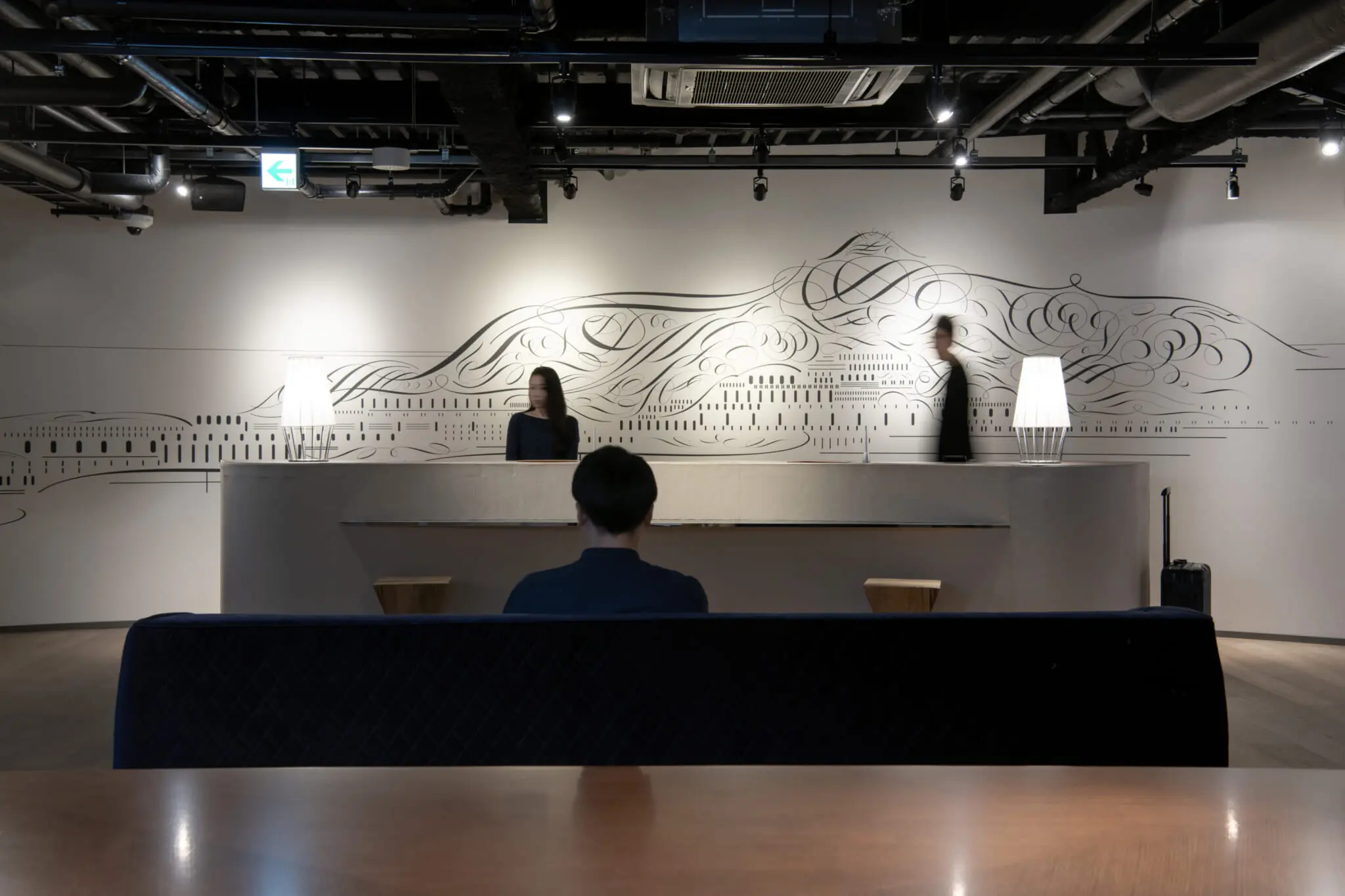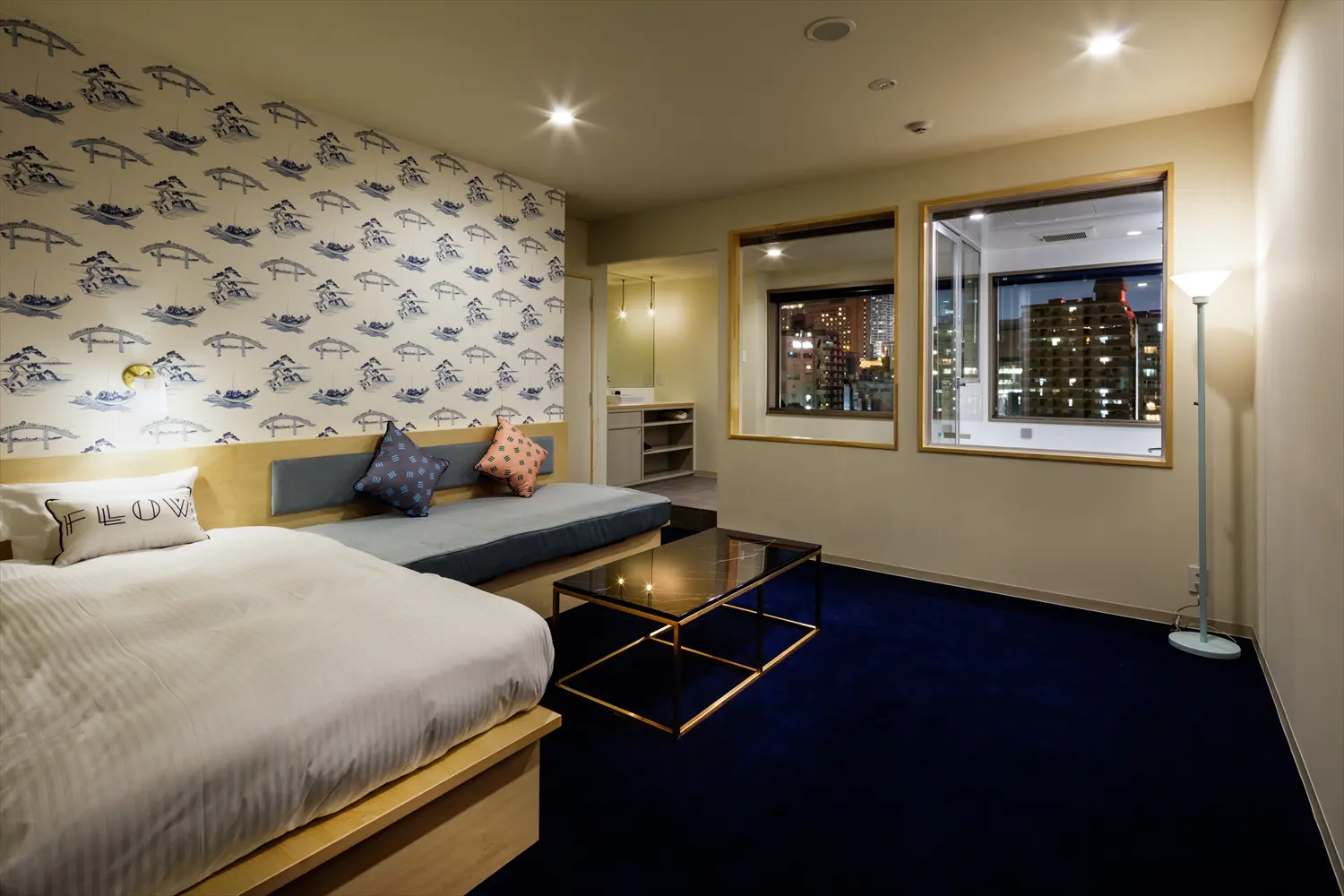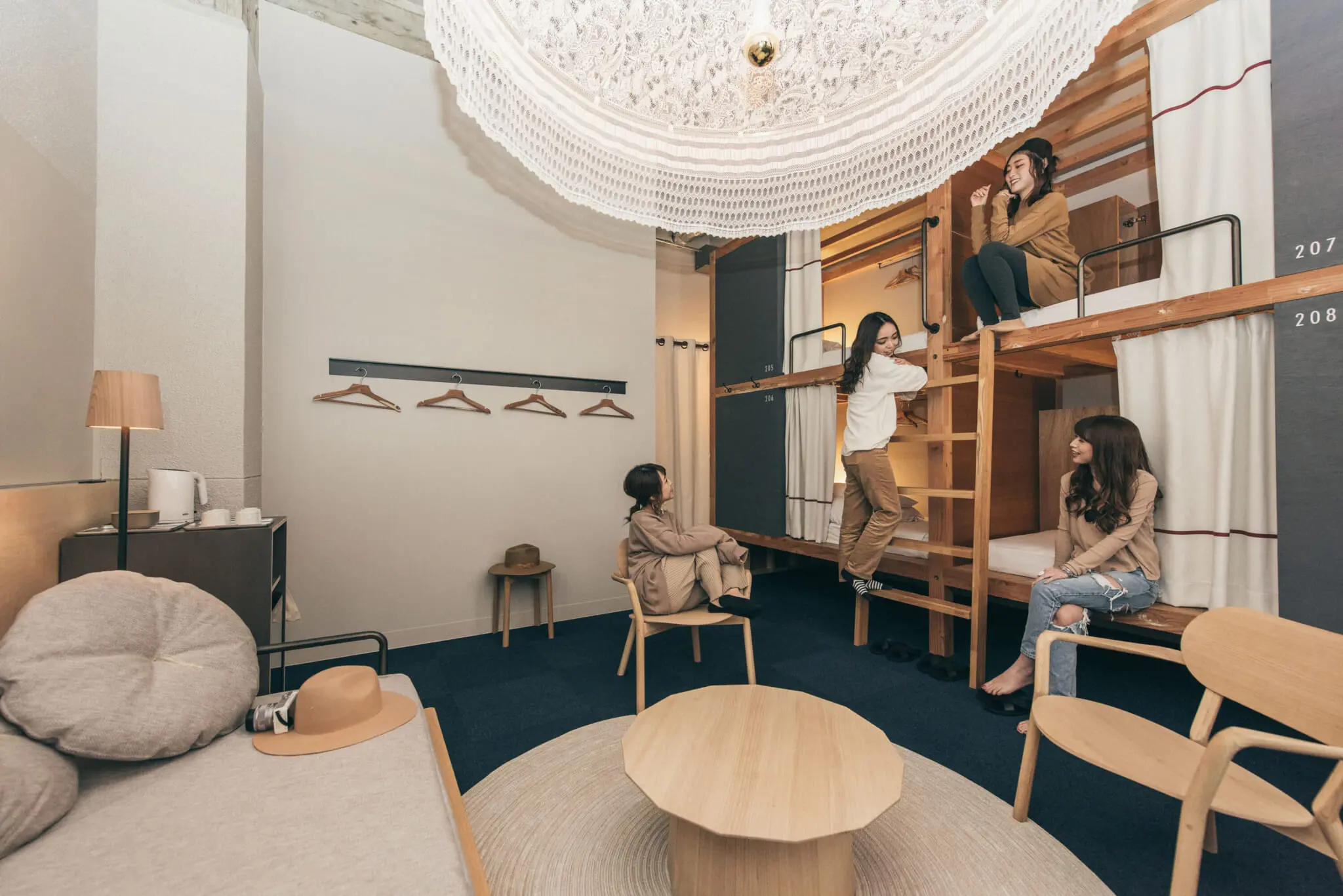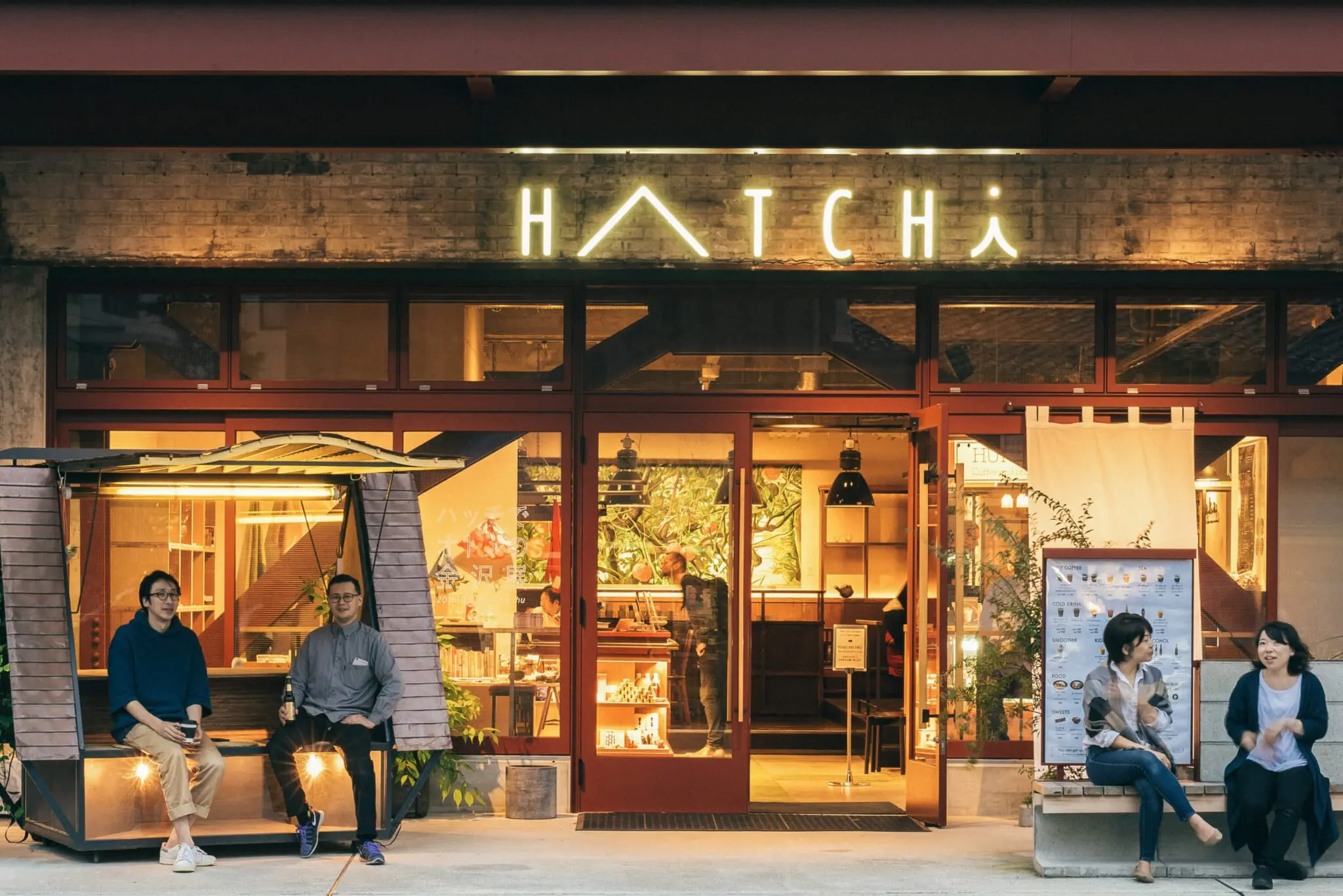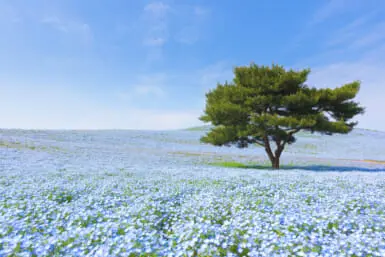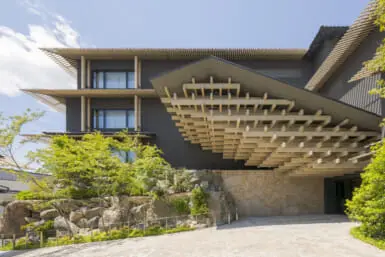A boutique hotel brand that aims to “coexist with the community,” The Share Hotels (stylized as THE SHARE HOTELS) is a collection of nine unique and elegant properties scattered around Japan, each of which is housed in a renovated building with its own rich history, including a former office, warehouse, hospital and bank. Each place has its own unique concept, reflected in its name and design, and they all thoughtfully incorporate characteristics from the regions where they are located — be it local contemporary art installed throughout the space or traditional crafts on display in the lobby.
The aim is to promote the charms of local communities while also involving those communities in various activities, including exhibitions and pop-ups, and to seamlessly fuse tradition with modern design. So, although these hotels are part of a collective, each one has its own distinctive charm and character. Get to know a little more about each one below.
Kumu (Kanazawa, Ishikawa): a sleek, Zen-inspired space with its own tea salon
A contemporary and charming hotel that draws out the rich culture of the castle town of Kanazawa, Kumu takes advantage of its various open spaces, including a tea salon and rooftop terrace, to host events, featuring craft artists, tea masters and much more. The word “kumu” — which can mean “to join,” “to draw out” or “to pour,” depending on the context — is an apt name for a hotel that attempts to bring people together while also placing an emphasis on hospitality. It’s located in a renovated office building, and opened in August 2017; Tokyo and Kyoto-based architect Yusuke Seki was the man responsible for the sleek design. The timber grid in the lobby is particularly impressive, as is the delicious matcha tea available at the tea salon, which is open to guests and non-guests alike.
Miroku (Naramachi, Nara): offering stunning views of the city and a chance to meet friendly deer
A picturesque boutique hotel designed by Keiji Ashizawa Design and Fumihiko Sano studio, Miroku is in the heart of Japan’s first capital, just a four-minute stroll from the 1,300-year-old Kofukuji Temple. The hotel’s north-facing rooms offer magnificent views of the temple’s majestic five-story pagoda, which is particularly splendid at night when illuminated. Miroku also boasts terrific views of the sacred Mount Kasuga Primeval Forest. Throughout the building, design flourishes that utilize materials from the prefecture, including Yoshino cedar and Asuka stone, pay homage to Nara’s unique culture and craftsmanship. On the first floor is a stylish café and bar with an open terrace that faces the bank of the Ara-ike Pond. This is a wonderfully relaxing place to sit and watch local deer.
Kaika (Asakusa, Tokyo): an “art storage hotel” that gives guests behind-the-scenes access to the art world
In July 2020, an old warehouse with a history that dates back more than half a century was transformed into an “art storage hotel.” It’s named Kaika, which has a variety of meanings, including “open shelves,” “flowering” and “enlightenment.” The most intriguing aspect of this hotel is that it doubles as a space where galleries store pieces from their collections; sitting in the lobby, guests can see a side of the art world that’s normally hidden away. Additionally, every other year, the hotel holds the Kaika Tokyo Awards to discover up-and-coming talented artists. Winners have their work displayed in the common areas of the hotel for two years. The hotel’s sleek café-restaurant, safn°, is named after the Icelandic word for “museum.”
Kiro (Hatchobori, Hiroshima): a former hospital turned into a vibrant hotel with a poolside lounge
Housed in a former hospital that’s conveniently located in a popular shopping and dining area near the Hiroshima National Peace Memorial Hall, Kiro is a modern and vibrant boutique hotel with a minimalist aesthetic, designed by Hiroyuki Tanaka Architects. Its standout feature is the Poolside Bar, a lounge and bar area on the third floor, which was previously the hospital’s rehabilitation pool. The original tiles and main entrance of the room have been preserved to maintain the original atmosphere of the space. Freshly baked crêpe dishes are served there with carefully selected ingredients such as sausage and seasonal vegetables, in addition to homemade soups, salad, coffee and more.
Rakuro (Marutamachi, Kyoto): lushly decorated with plants, featuring its own scent distillery
Ideally situated in the heart of Japan’s cultural capital, near the lush, verdant grounds of the Kyoto Imperial Palace, Rakuro is a gorgeously designed lifestyle hotel with a wide array of plants spread throughout the accommodation. The trendy lounge area is particularly eye-catching, featuring its own small scent distillery. Aromas there are distilled daily from plants such as cedar and kuromoji, procured from the northern part of the city. Guests are allowed to put aromatic water in a spray bottle and use it in their rooms. At the café and restaurant, there’s a focus on Kyoto ingredients and fermentation.
Tsugu (Sanjo, Kyoto): a modern escape housed in a historic building
Along Sanjo Dori, an extremely popular street in Kyoto known for hosting many shops, cafés and restaurants, you’ll find Tsugu, a modern hotel with a historical feel to it. That’s because part of the accommodation is a registered tangible cultural heritage structure that was built in 1914. Just past the bright reception area with large glass walls is a hideaway-like café and bar operated by the ethical coffee roaster Kinoshita Shoten, which has an industrial, urban look. The menu focuses on ingredients sourced from the Kyoto and Seto Inland Sea.
HakoBa (Hakodate, Hokkaido): a former bank facing Hakodate Port
At the foot of Hokkaido’s popular Hachiman-zaka slope, facing Hakodate Port and Mount Hakodate, is HakoBa, a hotel that opened its doors in 2017. It consists of two buildings: The first was originally a bank, built in 1932, and the second was previously a teddy bear museum. It also features numerous open spaces where people can gather, including a lobby lounge and a book lounge, and a restaurant bar facing the bay.
Lyuro (Kiyosumi, Tokyo): a sophisticated waterfront hotel inside a former office building
Renovated from an office building, Lyuro Tokyo Kiyosumi is a sophisticated waterfront hotel located along the capital city’s famous Sumida River. Meeting the diverse needs of individuals and groups, there are 14 dormitory-style rooms and 27 private rooms, including 22 rooms with views of the river. On the second floor you’ll find Clann by the River, a hip eatery selling locally baked bread, burgers, coffee, international and domestic craft beers, wine and much more. The riverside terrace is also a fantastic place to chill out on a warm day.
Hatchi (Kanazawa, Ishikawa): currently closed for lodging, but open for delicious coffee
Conveniently located in an area with two celebrated geisha districts, Higashi-chaya district and Kazue-machi chaya district Hatchi in Kanazawa consists of 50 dormitories and 11 individual rooms, with a shared kitchen, restaurant and other common facilities. Although it is currently closed for lodging, its popular coffee stand, Hum&Go#, is open for business. The coffee stand offers sweets that pair well with coffee and tea.
To make a reservation at any of the Share Hotels, visit their website.

